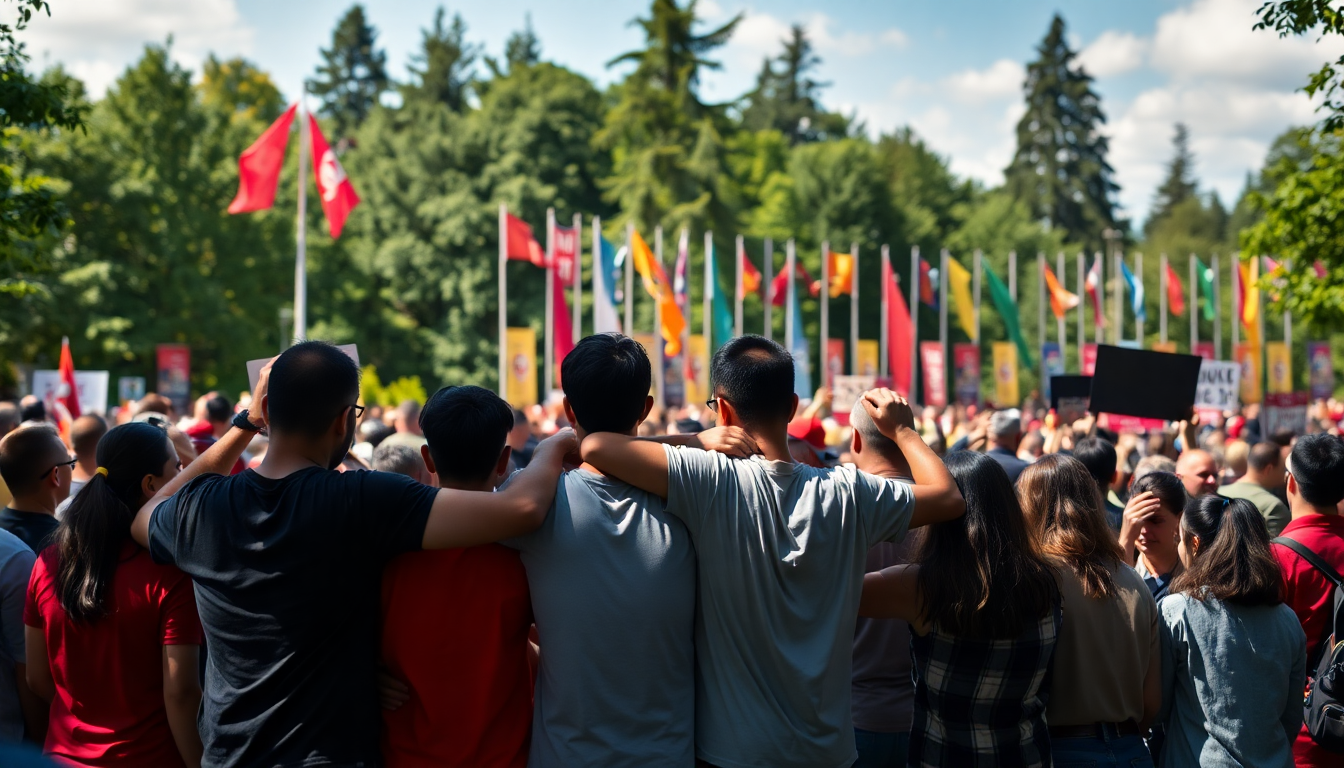Table of Contents
On Monday, hundreds of people gathered at Edmonds Park in Burnaby to celebrate Labour Day, a day that shines a light on the struggles and victories of workers throughout history. This year, the event took on even more significance, with the backdrop of potential job actions from one of British Columbia’s largest public sector unions, the B.C.
General Employees Union (BCGEU). As the union gears up to mobilize around 34,000 members for possible strike action, the rally served as a powerful reminder of the challenges workers face today.
The Current Labor Climate in British Columbia
In a bold move, the BCGEU has formally issued a strike notice, with job actions set to begin as early as 12:01 a.m.
on Tuesday. This is particularly noteworthy given the ongoing tensions between the province and the union at the bargaining table. During the rally, Labour Minister Jennifer Whiteside highlighted the importance of unity among workers, stating, “Labour Day is such an important opportunity for us to shine a light on the progress of working people and their organizations.” Her words resonated with attendees, emphasizing the ongoing struggle for rights that many people may take for granted today.
Recent voting results show that a staggering 92.7% of BCGEU members supported the move toward strike action. This diverse union represents a wide range of workers, including those in government liquor stores, community colleges, and various municipal roles. This broad representation underscores just how significant these labor disputes are for many sectors.
What Could Happen Next?
As the situation unfolds, the potential for a strike looms large. BCGEU President Paul Finch has indicated that some workers may initiate job actions if a last-minute agreement with the province isn’t reached. So, which sectors could be affected? The union plans to set up picket lines at various strategic locations across the province, including government offices and service centers.
The implications of these job actions could ripple throughout the economy, especially considering the disruptions from the BCGEU’s last job action in 2022. That strike targeted the B.C. Liquor Distribution Warehouses, leading to significant interruptions in the supply of alcohol and cannabis.
This history raises concerns that similar disruptions could occur again, impacting consumers and businesses alike.
Looking Ahead: The Future of Workers’ Rights
As the situation continues to develop, the broader implications for labor rights in British Columbia are still unfolding. The provincial government has been relatively quiet on the negotiations, asserting that essential services will remain unaffected. However, as tensions escalate, effective bargaining and negotiations will be crucial in finding a resolution that respects the rights and needs of workers.
In conclusion, Labour Day is not just a celebration of past victories for workers; it’s also a critical moment to reflect on current challenges and future possibilities. The solidarity displayed at the Burnaby rally underscores the enduring spirit of workers united in their quest for fair treatment, safe working conditions, and respect in the workplace. As we move forward, the actions taken by the BCGEU and other unions could shape the landscape of labor relations in B.C. for years to come. Are we ready to support the fight for workers’ rights?





